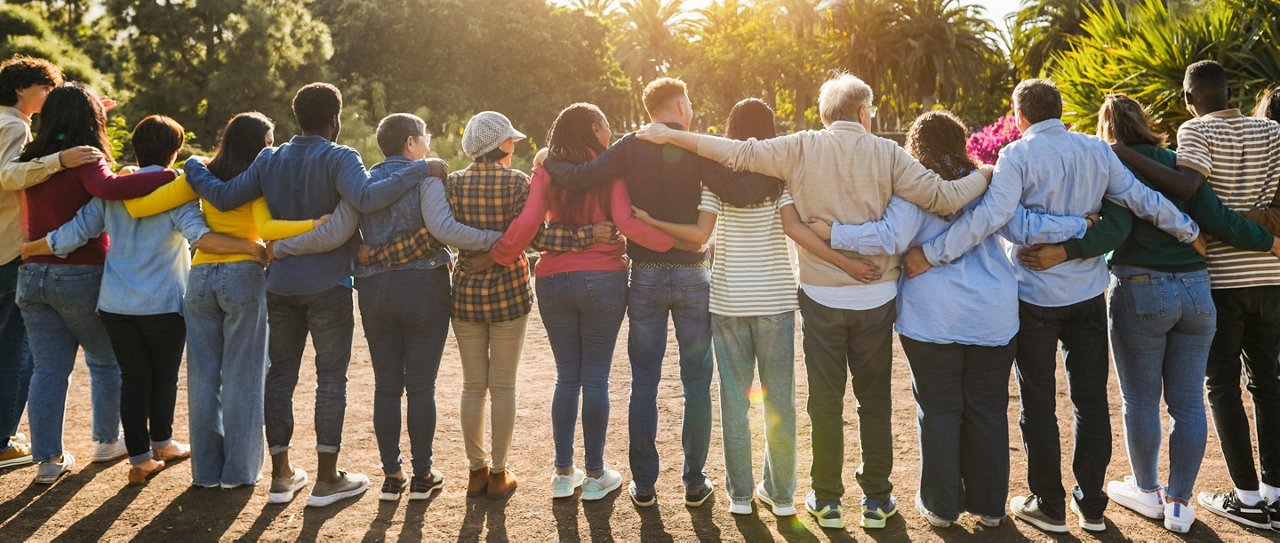Leading at the intersections of health and freedom

The idea of freedom means different things to different people. At Blue Cross and Blue Shield of North Carolina NC (Blue Cross NC), we believe that true freedom means the ability to live a life where barriers to health and wellness no longer exist – especially those barriers rooted in discrimination. When people are free to show up as themselves and have access to all the things they need to thrive, everybody wins.
I am particularly thrilled that this week, President Biden signed the Juneteenth bill. However, the original intent of my writing this blog was to discuss our work, because celebrating the significance of Juneteenth or Pride without taking action for equity is ineffective.
With everything going on in the world from the continued movement for Black Lives, standing against Asian American and Pacific Islander hate, and staunch reminders of the importance of LGBTQ+ allyship, some days it feels like there is so much more work to do so that everyone can truly be and feel free. In the midst of it all, and with very real challenges facing our members, communities and our own workforce, we must maintain hope, stand in our successes and take time to reflect on how far we have come.
One of the things I’m most proud of in being a part of Blue Cross NC is our 15 years of strong diversity culture and our deepened commitment to Diversity, Equity and Inclusion (DEI). We – along with our rich, diverse communities – hold the solutions to our biggest challenges. While there is certainly more work to do, the beauty of reflecting and envisioning success is that it propels us to do more instead of being complacent or giving up. Shifting our mindset to growth and opportunity helps us get comfortable being uncomfortable so that we can stretch, grow and take meaningful action.
During this celebratory month of both Pride and Freedom, we’re continuing to stand with the LGBTQ+ and Black communities and all those most impacted by the many ways people are experiencing multiple, compounding effects of unjust treatment and discrimination. We don’t have to look too far back to understand this notion of intersectionality.
Intersectionality is a concept coined nearly 30 years ago by law professor Kimberle’ Crenshaw. This concept helps us see how social justice issues like racism, sexism, heterosexism, and transphobia are often overlapping at multiple levels. Think of all the ways that being a person of color, a young person, a person living with different abilities, and who identifies as transgender today can lead to unjust challenges that are not overcome by solutions focused on a single aspect of life. Picture that person in your mind. Our solutions co-created with them and so many must be multi-pronged, multi-level and broad enough to address systemic inequities in multiple forms.
That’s because our members, our workforce and the communities we serve are increasingly representative of multiple social identities. One of the most revered women leaders of our time was Audre Lorde. A self-described “Black, lesbian, mother, warrior, poet,” Audre Lorde dedicated both her life and her creative talent to confronting and addressing injustices of racism, sexism, classism, and heterosexism. In 1982, she described intersectionality when she said, “There is no such thing as a single-issue struggle because we do not live single-issue lives.”
That’s why we’re working and investing at the intersections of health equity and economic mobility. We’re being intentional about addressing Drivers of Health such as food security, housing, and social isolation, in communities most impacted by long-standing forms of bias and discriminations. We’re building a coalition of organizations willing to work with us to tackle these issues. And we’re creating a Health Care Equity Index to establish measures and to show reduction in disparities over time among our members and North Carolinians as a whole.
Our Employee Networks partner together to promote a more inclusive workforce by identifying, exploring, and supporting common identities. An example of these efforts is this month during Pride, our LGBTQ+A Network is leading a conversation on intersectionality about ways different identities within the community can work together and be supported.
We’re holding ourselves to the highest possible standards and working to ensure our actions make diversity, equity and inclusion an even higher priority for our employees. We know that in order to best serve North Carolina, our employees must reflect our members and communities. We’re prioritizing increasing employee representation of senior professional roles throughout the company through recruitment, hiring, promotion and retention for people of color, women, people of all abilities, and veterans.
And to do this work at the intersections, we have to build on our foundation and critical awareness in order to get to meaningful conversation and action. Examples of this include requiring all people leaders to participate in racial equity learning and the development of resources such as our DEI Glossary and Style Guide. The key to freedom and belonging is that we must get to the root causes of the issues we hope to solve to create sustainable, equitable change.
As I recently read the full presentation that Audre Lorde made in 1982, I learned that she went on to say, “We are not perfect, but we are stronger and wiser than the sum of our errors.” In dealing with these difficult issues, we know that we are not perfect, we’ve already made some mistakes, and we won’t always get it right.
But, if we stand together in solidarity and lead through empathy and an intersectional lens that leverages our differences, our common experiences, and our connection to humanity, we will improve the health and well-being of our customers and communities.
That’s why Blue Cross NC proudly celebrates Juneteenth and Pride Month and the freedom of all people to celebrate who they are and have full access to the care they need for their best health. We won’t stop until health care is better for all!
Browse related articles


Blue Cross and Blue Shield of North Carolina does not discriminate on the basis of race, color, national origin, sex, age or disability in its health programs and activities. Learn more about our non-discrimination policy and no-cost services available to you.
Information in other languages: Español 中文 Tiếng Việt 한국어 Français العَرَبِيَّة Hmoob ру́сский Tagalog ગુજરાતી ភាសាខ្មែរ Deutsch हिन्दी ລາວ 日本語
© 2024 Blue Cross and Blue Shield of North Carolina. ®, SM Marks of the Blue Cross and Blue Shield Association, an association of independent Blue Cross and Blue Shield plans. All other marks and names are property of their respective owners. Blue Cross and Blue Shield of North Carolina is an independent licensee of the Blue Cross and Blue Shield Association.



